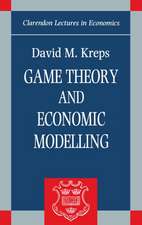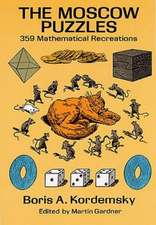Group Formation in Economics: Networks, Clubs, and Coalitions
Editat de Gabrielle Demange, Myrna Woodersen Limba Engleză Paperback – 12 sep 2012
| Toate formatele și edițiile | Preț | Express |
|---|---|---|
| Paperback (1) | 385.49 lei 43-57 zile | |
| Cambridge University Press – 12 sep 2012 | 385.49 lei 43-57 zile | |
| Hardback (1) | 569.23 lei 43-57 zile | |
| Cambridge University Press – 9 ian 2005 | 569.23 lei 43-57 zile |
Preț: 385.49 lei
Nou
Puncte Express: 578
Preț estimativ în valută:
73.76€ • 77.21$ • 61.39£
73.76€ • 77.21$ • 61.39£
Carte tipărită la comandă
Livrare economică 31 martie-14 aprilie
Preluare comenzi: 021 569.72.76
Specificații
ISBN-13: 9781107407381
ISBN-10: 1107407389
Pagini: 494
Dimensiuni: 156 x 234 x 25 mm
Greutate: 0.69 kg
Editura: Cambridge University Press
Colecția Cambridge University Press
Locul publicării:New York, United States
ISBN-10: 1107407389
Pagini: 494
Dimensiuni: 156 x 234 x 25 mm
Greutate: 0.69 kg
Editura: Cambridge University Press
Colecția Cambridge University Press
Locul publicării:New York, United States
Cuprins
Part I. Strategic Approach to Network Formation: 1. A survey of models of network formation: stability and efficiency Matthew O. Jackson; 2. Models of network formation in cooperative games Anne van den Nouweland; 3. Farsighted stability in network formation Frank H. Page, Jr and Samir Kamat; 4. Learning in networks Sanjeev Goyal; Part II. On Equilibrium Formation of Groups: A Theoretical Assessment: 5. Group formation: the interaction of increasing returns and preferences diversity Gabrielle Demange; 6. Games and economies with near exhaustion of gains to scale Alexander Kovalenkov and Myrna Wooders; 7. Coalitions and clubs: Tiebout equilibrium in large economies John Conley and Stefani Smith; 8. Secession-proof cost allocations and stable group structures Michel Le Breton and Shlomo Weber; Part III. Groups, Clubs, Alliances in Political and Economic Environments: 9. Political parties and coalition formation Amrita Dhillon; 10. Design of constitutional rules: Banzhof power index, design of rules Mika Widgren; 11. Group and network formation in industrial organization: a survey Francis Bloch; 12. Institution design for managing global commons: lessons from coalition theory Carlo Carraro; 13. Inequality and growth clubs Fernando Jaramillo, Hubert Kempf and Fabien Moizeau; 14. Informal insurance, enforcement constraints, and group formation Garance Genicot and Debraj Ray; 15. Spontaneous market emergence and social networks Marcel Fafchamps.
Descriere
This volume introduces the reader to game-theoretic treatments of group formation.















